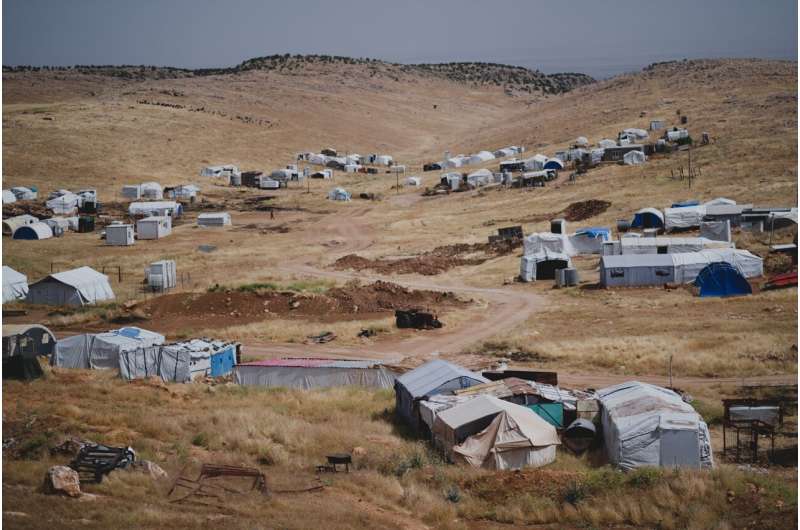Mental well-being of refugees 'significantly' improved by ground-breaking support program

The mental health of vulnerable Rohingya refugees was significantly improved by a ground-breaking program of support, a new study has found.
A combination of psychoeducation, parenting support and play-activity programs introduced for mothers with children fleeing violence and persecution in Myanmar brough significant benefits not only for the mothers but also for the development of children.
The findings were revealed in a new study carried out by a group of academics in partnership with the charity BRAC. It involved 3,500 Rohingya mother and child pairs who were living in refugee camps in Bangladesh, having been forced to flee their homes in neighboring Myanmar.
The study was co-authored by Dr. Abu Siddique (King's College London), Asad Islam (Monash University), Tanvir Ahmed Mozumder (BRAC University), Tabassum Rahman (University of Newcastle), and Tanvir Shatil (BRAC University).
Dr. Siddique said: "We found that the intervention significantly improved the psychological well-being of treated mothers. Specifically, mothers that received psychosocial support experienced a reduction in trauma and a reduction in depression relative to mothers in the control group that did not receive the psychosocial intervention.
"Among the mothers that were identified to have trauma and depression at baseline, we saw a sizeable improvement in their mental well-being. In addition, treated mothers also experienced an improvement in their self-reported level of happiness and sense of belongingness in the host community following the intervention."
The study involved a program of psychoeducation and parenting support for mothers, delivered by community peers who worked as volunteers, and play activities for mothers and children. It was provided on a weekly basis for a year, from October 2019 until September 2020.
The researchers also found that mentally-unhealthy mothers who received the treatment caught up to, and often surpassed, the mental health of the "mentally-healthy" mothers in the control group following the program.
The effect on children was also marked, with "significant reductions" in trauma and depression relative to children in the control group. The treatment also had positive effects on communication skills, gross-motor skills, and problem-solving skills, and was found to reduce the number of children who were underweight and whose growth had been stunted.
Dr. Siddique said: "These impacts have strong policy implications, particularly for low- and middle-income countries hosting refugees where resources for refugees are often limited and more-costly child development approaches, such as cash transfers, pediatric support, nutritional supplements, and special healthcare needs are often unavailable and not prioritized by host governments."
The intervention, believed to be the first of its kind with Rohingya refugees, cost about £35 per mother-child pair and is currently being scaled-up by BRAC in the refugee camps.
More information: Abu Siddique et al, Forced Displacement, Mental Health, and Child Development: Evidence from the Rohingya Refugees, (2022). DOI: 10.31235/osf.io/b4fc7


















